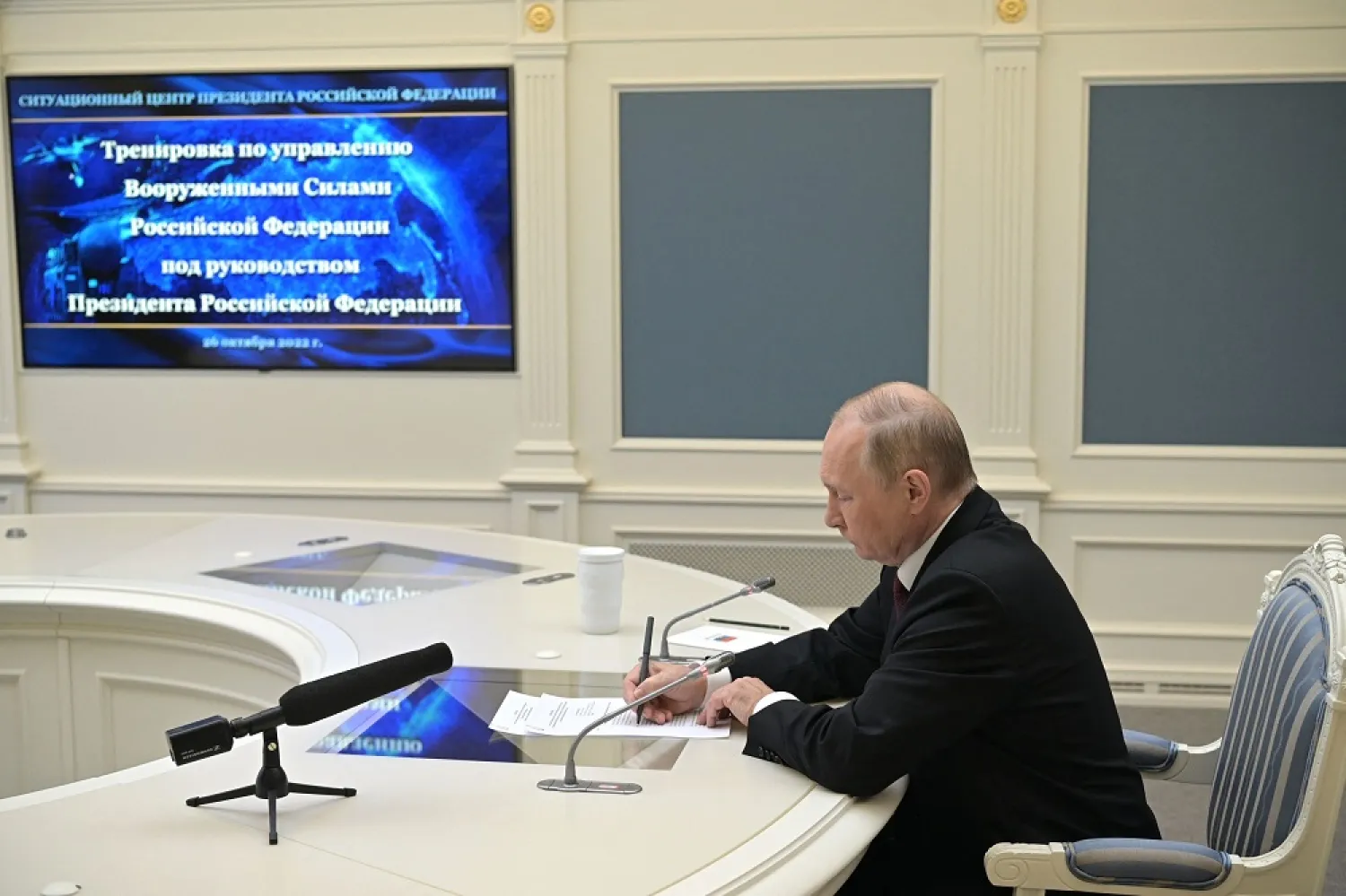Russian President Vladimir Putin on Wednesday monitored drills of the country’s strategic nuclear forces involving multiple practice launches of ballistic and cruise missiles, in a show of force amid the heightened tensions with the West over the conflict in Ukraine.
Defense Minister Sergei Shoigu reported to Putin that the exercise was intended to simulate a “massive nuclear strike” by Russia in retaliation for a nuclear attack on the country.
The maneuvers followed Putin's warning about his readiness to use “all means available” to fend off attacks on Russia's territory in a clear reference to the country's nuclear arsenals.
During the Russian drills Wednesday, a Yars land-based intercontinental ballistic missile was test-fired from the northern Plesetsk launch site. A Russian nuclear submarine in the Barents Sea also launched a Sineva ICBM at the Kura firing range on the far-eastern Kamchatka Peninsula, and Tu-95 strategic fired cruise missiles at practice targets.
The Kremlin said in a statement that all tasks set for the exercise were fulfilled and all the missiles that were test-fired reached their designated targets.
The Russian drills came as NATO was holding its own annual nuclear exercises in northwestern Europe that will run until Oct. 30. The drills dubbed Steadfast Noon involve around 60 aircraft, including US long-range B-52 bombers and fighter jets capable of carrying nuclear weapons, but do not involve any live bombs.
Russian maneuvers involving land, sea and air components of the nuclear triad have taken place on an annual basis to train the country's nuclear forces and demonstrate their readiness. A previous such exercise was held just days before Putin sent troops into Ukraine.
The Biden administration said Tuesday that Russia gave notice it intended to stage routine drills of its nuclear capabilities. The Pentagon and US State Department said Russia had complied with the terms of the last US-Russia arms control agreement in notifying Washington of the upcoming tests.
The Russian nuclear exercise comes amid Moscow’s warnings of a purported Ukrainian plot to detonate a radioactive device commonly known as a “dirty bomb” in a false flag attack to blame Russia.
Putin himself repeated the dirty bomb claim on Wednesday. “We know about the plans to use the so-called dirty bomb for provocations,” he said.
Shoigu, the Russian defense ministry, also called his Chinese and Indian counterparts Wednesday to discuss the unfounded allegation, which Ukraine and its Western allies have strongly rejected.
India’s defense minister Rajnath Singh tweeted that he pointed out to Shoigu that “the nuclear option should not be resorted to by any side as the prospect of the usage of nuclear or radiological weapons goes against the basic tenets of humanity.”
The Ukrainian government has said it suspects Russia is planning its own false flag operation.
Authorities in Poland, Ukraine's western neighbor, said they were closely watching Russia’s movements to prepare for the potential use of nuclear or chemical weapons.
Deputy Defense Minister Marcin Ociepa charged the Kremlin “may reach for nuclear or chemical weapons” in the face of military setbacks in Ukraine.









